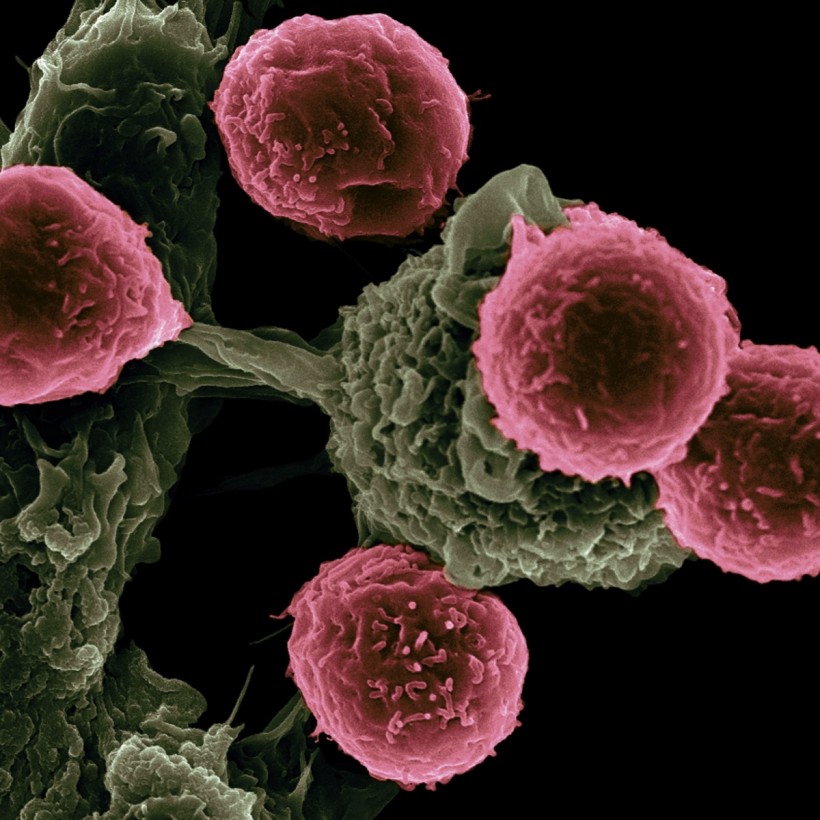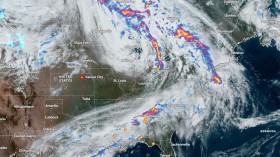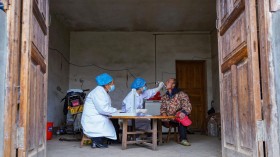A common cause of cancer is genetic mutations. As UT Austin Professor Kevin Dalby explains, not all mutations are harmful, but there are types of gene mutations that could and often do cause cancer.
It's essential to understand the different types of gene mutations, how they occur and what types of cancer are most commonly linked to genetic mutations.
The Types of Mutations
Genetic mutations can be categorized into two main buckets. They are acquired and inherited.
Acquired mutations occur over time in someone's life, either due to environment, behavior, or exposure to certain things. This type of mutation is the one that is the most common cancer cause.
Some factors contributing to acquired mutations could be a virus, ultraviolet radiation, age, and tobacco and alcohol use. These mutations occur over time through excessive exposure, which could result in the formation of a tumor in a cell in the breast or colon, for example.
Cancer that is caused by an acquired mutation is sometimes referred to as sporadic cancer. They aren't found in all cells in a body, and they aren't passed from a parent to their child.
The other type of mutation is called inherited or germline mutations. This initially occurs in an egg cell or a sperm cell and then is passed along to a child when conceived.
When this occurs, the mutation will then be copied into all cells in the embryo. The mutation can pass from one generation to the next because it affects a person's reproductive cells.
Cancer that this type of mutation causes is referred to as inherited cancer, and it accounts for anywhere between 5% and 20% of all types of cancers.
When Mutations Are Harmful
Mutations aren't uncommon. Some are beneficial. What determines whether a genetic mutation is harmful is where it occurs.
Most of the time, the human body can correct genetic mutations. This is why single mutations often don't cause cancer. Instead, cancer most commonly happens from more than one mutation over a person's lifetime.
Again, this is a significant reason older people typically have cancer more than their younger counterparts because the mutations compound over time.
Gene Mutations That Cause Cancer
There are broad categories of genes that contribute to the development of cancer. One group is called tumor suppressors. They are classified as protective genes but ultimately can limit the growth of cells by repairing DNA that's mismatched or helping to control when a particular cell dies.
This is why when this type of gene eventually mutates; cells can grow out of control, often resulting in the formation of a tumor.
Oncogenes take healthy cells and turn them cancerous. These gene mutations aren't inherited, and they are broken down into two common types. HER2 is found in ovarian and breast cancer cells. RAS genes contribute to both cell death and growth.
Finally, as Dr. Kevin Dalby explains, DNA repair genes are responsible for fixing mistakes in the body's copies of DNA. When there is a mutation here, mistakes are allowed to happen, and cancer can form.
About Dr. Kevin Dalby
Dr. Kevin Dalby is a chemical biology and medicinal chemistry professor working on cancer drug discovery. At the College of Pharmacy at The University of Texas, he examines the mechanisms of nature and cancer to develop new treatments and teach and motivate students to conduct research. Dalby is optimistic about the future of cancer treatments.
© 2024 NatureWorldNews.com All rights reserved. Do not reproduce without permission.





![Microplastics Escape Body's Gut to 'Infiltrate' the Brain, Kidneys and Liver [Study]](https://1471793142.rsc.cdn77.org/data/thumbs/full/70195/280/157/50/40/microplastics-escape-bodys-gut-to-infiltrate-the-brain-kidneys-and-liver-study.jpg)
